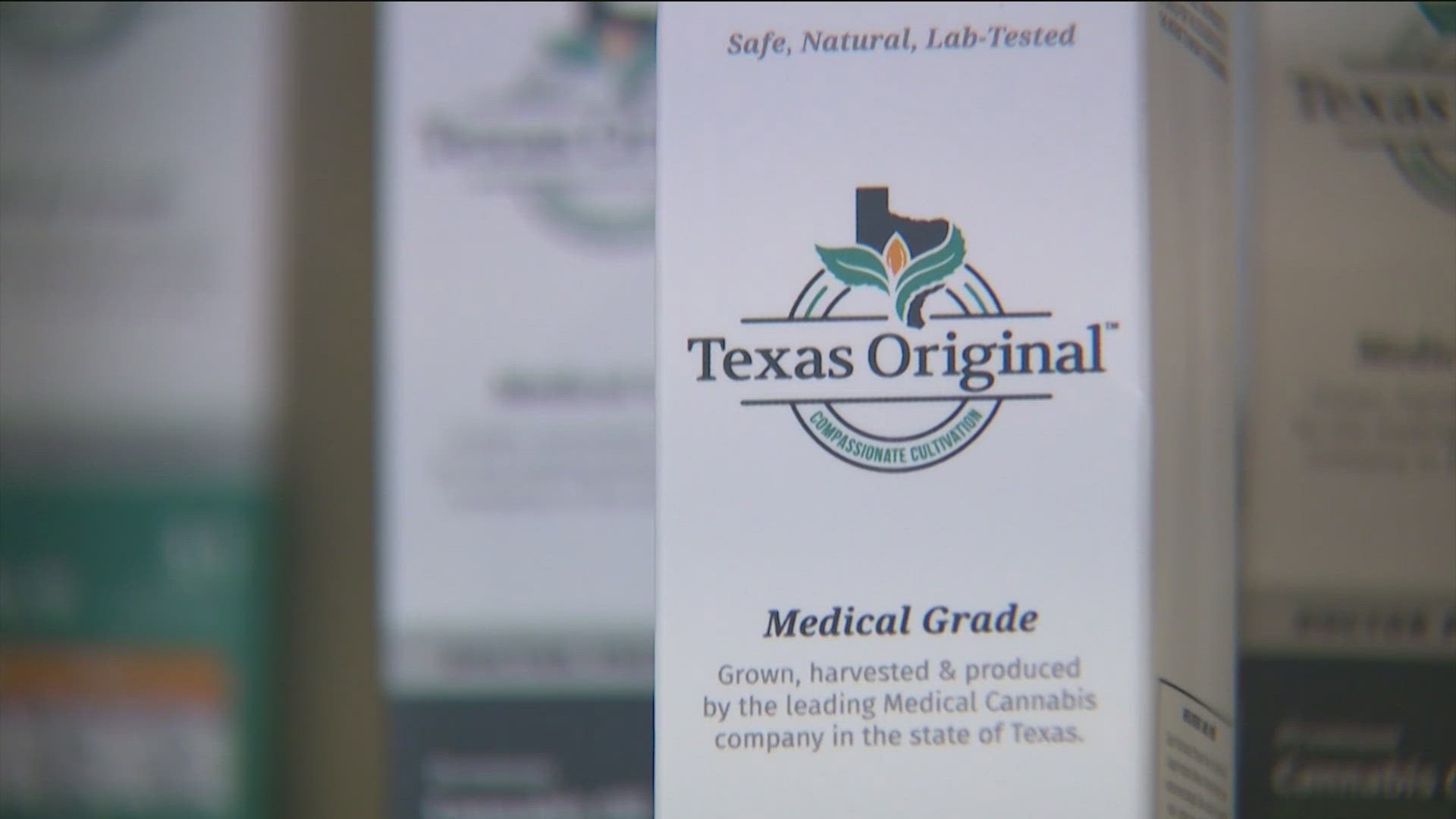AUSTIN, Texas — In a historic move, the U.S. Drug and Enforcement Administration (DEA) is moving to reclassify medical marijuana as a less dangerous drug, according to the Associated Press.
The plan would not legalize marijuana at the federal level, but it would reclassify it from a Schedule I drug – like cocaine, which is believed to be highly dangerous and addictive – to a Schedule III drug that can be lawfully prescribed as medication, like Tylenol with codeine.
"It's an exciting time," said Dr. Mathew Brimberry, a family physician, fellow of the American Academy of Hospice and Palliative Medicine and medical director of Texas Cannabis Clinic.
He has been part of the fight to expand medical marijuana in Texas. Right now, medical marijuana usage is legal but limited in potency and illnesses that qualify. Brimberry believes if medical marijuana is reclassified there will be a lot of benefits.
"This will give us better rigorous studies on how to use this medicine," Brimberry said. "It'll destigmatize it. And it'll also open it up for more patients to have access to it in a safe and legal manner."
RELATED: US poised to ease restrictions on marijuana in historic shift, but it'll remain controlled substance
Marijuana attorney Michelle Donovan agrees.
"It would give opportunities to also have more research done because, currently, on a federal level, that's not even possible, except for one university down south," Donovan said.
Research that could help prove what Brimberry is already seeing with his patients in Texas.
"Anything from autistic children that could finally calm down and learn how to speak and engage with their peers, all the way up to multiple sclerosis patients, that their pain and their spasticity was finally controlled and they can go back to work every day," Brimberry said.
According to Brimberry, it will also destigmatize the medical use of cannabis. That could open more people to using it instead of addictive opioids. Right now, 79,000 patients are registered in the state's Compassionate Use program, but Brimberry believes 3 to 5 million people qualify.
Donovan said this would also bring banking reform.
"So we may be able to argue that since it's moved to a Schedule III classification, we can have some banking," Donovan said. "So we're not doing all these cash transactions or using just, you know, some local banks and credit unions that have approved it on a state level."
In a statement, Nico Richardson, the CEO of Texas Original dispensary, said, "The immediate benefit for most medical cannabis operators would be the ability to deduct operating expenses from federal taxes. Medical cannabis operators have exorbitant federal income tax burdens that no other business has. That financial burden drives up the cost of medication and that ultimately falls on the patients.”
While the Texas Legislature will ultimately decide cannabis laws in the state, both Brimberry and Donovan believe this change could change the mind of lawmakers to expand medical marijuana use for a range of needs.
"We're in a unique situation to where we actually have the infrastructure to support the rescheduling of this medicine," Brimberry said.
That's because Texas already requires a prescription for usage, so they have the software.
Once the White House Office of Management and Budget (OMB) signs off, the DEA will take public comment on the plan. With it being election season, Donovan has a feeling it might go into effect before the year is over.
"My hope would be that maybe, fingers crossed, the DEA would be done with everything would be approved, moved down to III, maybe by late September," Donovan said. "But I might be very optimistic in doing that."
In regards to expanding medical access in Texas, Richardson also wrote:
“To see real change in the Texas market, our state legislature must make necessary changes to the Compassionate Use Program. The DEA's stance is further proof of what we already know is true about the medical benefits of cannabis. It is well past time to allow treatment for more medical conditions, especially chronic pain. No Texan should have to choose between suffering from debilitating pain or risking addiction with an opioid medication."

